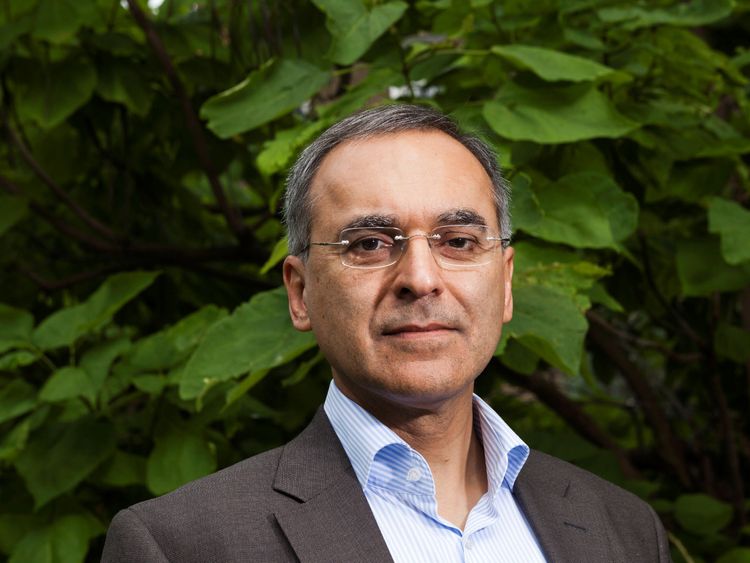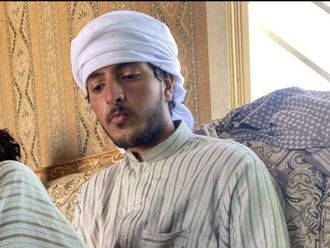Abu Dhabi: Only 30 per cent of the UAE’s economic output comes from oil and gas, making it one of the most diversified economies in the Gulf, President of the World Wide Fund for Nature (WWF-International) Pavan Sukhdev told the majlis of His Highness Shaikh Mohammad Bin Zayed Al Nahyan, Crown Prince of Abu Dhabi and Deputy Supreme Commander of the UAE Armed Forces, on Wednesday.
“The UAE’s strategic plan for the next five years is to focus on further economic diversification – trade and tourism, improving education and increasing private sector employment,” said Sukhdev. “It also means evaluating the most important risks and opportunities moving forwards and doing so with a lens that recognises the many dimensions of wealth.”
Sukhdev, who is also special adviser and head of the UN Environment Programme’s (UNEP) Green Economy Initiative, said the UAE economy is home to many industries – petroleum and natural gas, real estate development, aluminum, cement, fertilisers, commercial ship repair, construction materials, logistics, handicrafts, textiles, food and beverage and fisheries.
He added that due to its natural heritage of oil and gas, 99 per cent of the UAE’s energy is sourced from fossil fuels, which are a key area of stranded-asset risk that needs to be managed, looking ahead.
“With Abu Dhabi’s ‘Economic Vision 2030’, the government has taken the right step in the direction of exploring the renewable energy sector,” said Sukhdev. “The government has reduced fuel subsidies and introduced an excise tax on sweetened beverages and on tobacco, thus reflecting the principle of ‘taxing the bads’. Together with risks, the opportunities are many, including in the UAE’s fastest growing industries, retail, hospitality, healthcare, food and beverages, marketing and advertising,”
Unsurprisingly Sukhdev said the private sector contributes a lion’s share to the UAE’s GDP — about 70.5 per cent in 2018 — so any transition towards a different model would need to engage and leverage the private sector’s contribution to UAE.
“Unless economic transformation and the right systems of measurement are put in place and incentives and disincentives are aligned to deliver change towards an economy of permanence, ‘business-as-usual’ behaviour by the private sector will continue to drive us towards exceeding our planetary boundaries; thereby putting our livelihoods at risk. That is a future that none of us can afford,” said Sukhdev.
In his lecture themed: “Redefining Wealth for an Economy of Permanence” Sukhdev said we are living in the Anthropocene, an age where humanity has become an ecological force that is changing the surface of the planet, from where we consume resources as if they are limitless. “We mismanage public wealth because we do not even measure it properly. Our current political and economic systems measure growth in a nation’s gross domestic product (GDP) and an organisation’s profit and loss as the determining factors of success.”
He explained in our shortsightedness, we have formalised measures for only one dimension of our wealth, i.e. manufactured wealth, and we have ignored others such as wealth in the form of human health, knowledge and skills; wealth of natural resources and ecosystems; and wealth of strong relationships and social institutions, be they formal (constitutions, rules and regulations) or informal (culture and traditions, trust, respect for others.) As a result, trying to sit steady on a ‘one-legged chair’ of man-made wealth, we always find ourselves unbalanced without the other three legs to support us.
‘Economy of Permanence’ thus recognised that wealth existed in three tiers - private, community and public – and that human well-being and peaceful co-existence could not be achieved unless all three tiers were given due attention and investment. It also recognised that wealth has many forms – natural, human, social and produced – all of which are necessary for economic progress. However, government policies and investments targeting changes for improvement cannot be formulated or tested without metrics that consider all three tiers of ownership, and all four forms of wealth.
Today’s metrics – such as Profit-and-Loss accounts at the company level – only measure changes in privately owned capital of the produced kind, ignoring all other categories and classes. This cannot be the way forward, said Sukhdev.
He added we can trace the nature of our largest recent financial and economic crises (i.e. Latin American debt crisis, late 1970’s; Savings and Loans crisis, early 1980’s; Asian Debt Crisis, 1997-98; Mortgage derivatives crisis, 2008) to poorly understood risk and poorly managed credit, but one of the underlying reasons for such poor practices was a perversely incentivised banking and finance sector, responding to policy directions which were themselves not well informed.
“Sooner rather than later, all countries will have to fix this pervasive problem of using the wrong lens with which to pursue economic development for its citizens,” he concluded.
The Ramadan series of lectures is part of Shaikh Mohammad’s efforts to spread the spirit of knowledge and learning in the UAE, by inviting renowned scholars, experts, officials and entrepreneurs to speak at his majlis at Al Bateen Palace in Abu Dhabi. The lectures are attended by Shaikhs, senior government officials, diplomats, business leaders and others.













